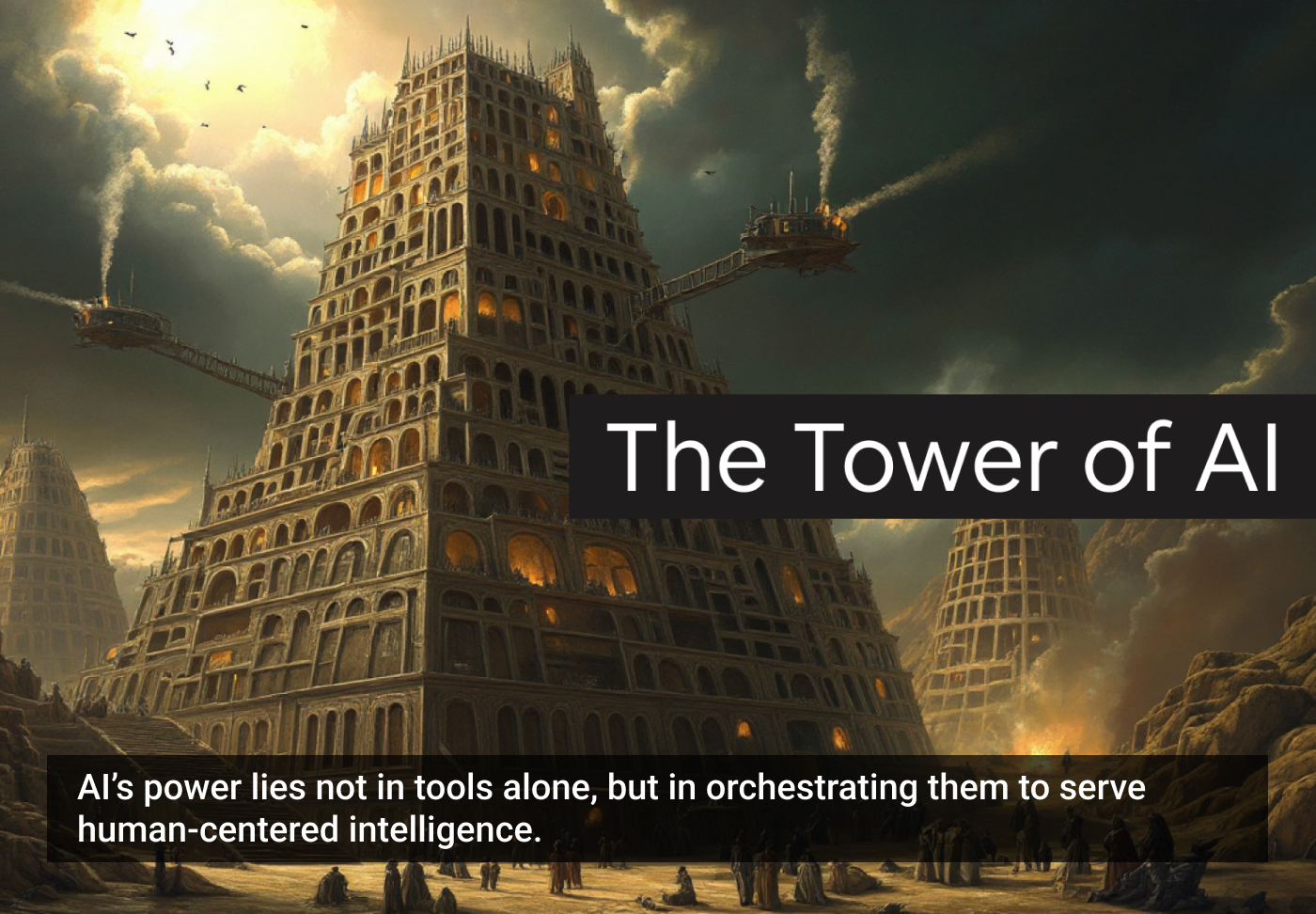
"AI isn't failing because of weak technology - it's failing because we treat it like a hammer looking for nails. This article exposes why 80% of initiatives collapse, how fragmented 'random acts of intelligence' waste potential, and why the real breakthrough lies in orchestrating existing AI patterns into coherent, outcome-driven systems. Drawing on Turing's vision and the cautionary tale of Babel, it makes the case for a shift from experimentation"
"a hammer looking for nails. This article exposes why 80% of initiatives collapse, how fragmented 'random acts of intelligence' waste potential, and why the real breakthrough lies in orchestrating existing AI patterns into coherent, outcome-driven systems. Drawing on Turing's vision and the cautionary tale of Babel, it makes the case for a shift from experimentation to intentional design - the path toward true 'Organizational AGI.'"
Most AI initiatives collapse because organizations treat AI as an opportunistic tool rather than designing for outcomes. Eighty percent of initiatives fail, producing fragmented 'random acts of intelligence' that waste resources and leave no integrated capability. The real breakthrough requires orchestrating existing AI patterns into coherent systems that are intentionally designed to deliver business outcomes. Turing's vision for machine intelligence and the cautionary tale of Babel illustrate the risks of fragmented development and the promise of unified architecture. Shifting from experimentation to intentional design enables the emergence of Organizational AGI that scales predictable, coordinated intelligent behavior.
Read at UX Magazine
Unable to calculate read time
Collection
[
|
...
]